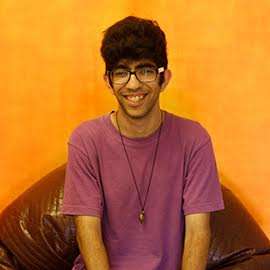Ohsumi won the Nobel for his work on autophagy. Here's what it means

By now you probably know that Japan's Yoshinori Ohsumi has won this year's Nobel prize for medicine. He will receive 8 million Swedish krona for his findings on the "mechanisms for autophagy", basically, how "cells break down and recycle their own components". If you want to know more, read on:
Who is he?
Ohsumi was born in Fukuoka, Japan in 1945. He received his PhD from the University of Tokyo in 1974. After starting out in chemistry, he switched to molecular biology. After failing to find a job, he took up a postdoctoral position at Rockefeller University, New York. There he studied in-vitro fertilisation in mice.
A retired professor at Tokyo Institute of Technology's Frontier Research Center, Ohsumi won the Kyoto Prize for Basic Science in 2012.
What was his discovery?
In simple terms, autophagy is the body's internal recycling program.
"The word autophagy originates from the Greek words 'auto', meaning 'self', and phagein, meaning 'to eat'. Thus, autophagy denotes 'self-eating'," reads the press release from The Nobel Foundation. Cells break down the proteins and non-essential components to reuse them as energy during starvation. In fact, autophagy is also used by cells to kill viruses and bacteria.
Autophagy ”self eating” is a process for degrading and recycling cellular components #NobelPrize #Medicine pic.twitter.com/glNWLPjxHe
— The Nobel Prize (@NobelPrize) October 3, 2016
"The process is crucial for preventing cancerous growths, warding off infection and, by maintaining a healthy metabolism, it helps protect against conditions like diabetes," The Guardian points out. "Dysfunctional autophagy has been linked to Parkinson's disease, type 2 diabetes, cancer and a host of age-related disorders. Intense research is underway to develop drugs that can target autophagy to treat various diseases."
Autophagy is crucial because it's involved in many different things from Parkinson's to immune disease and even aging. Scientists have known about autophagy since the 1960s. However, it wasn't until Ohsumi's experiments in the 1990s with baker's yeast, that they found out how it worked.
1974 Medicine Laureate Christian de Duve coined the term autophagy (meaning “self eating”) in 1963 #NobelPrize pic.twitter.com/lsZy4SJwIK
— The Nobel Prize (@NobelPrize) October 3, 2016
"Autophagy can rapidly provide fuel for energy and building blocks for renewal of cellular components, and is therefore essential for the cellular response to starvation and other types of stress. After infection, autophagy can eliminate invading intracellular bacteria and viruses," continues the press release.
The long and short of it is that autophagy helps in addressing normal damage and even the wear and tear to the cells.
Ohsumi was in his lab at the time of the announcement and was in a "slight state of shock" upon hearing the news according to The Guardian.
Last year, the prize was split - Irish-born William Campbell of the US, Satoshi Omura of Japan and China's Tu Youyou sharing the prestigious award for their discoveries of treatments against parasites.
"Autophagy has been known for over 50 years but its fundamental importance in physiology and medicine was only recognized after Yoshinori Ohsumi's paradigm-shifting research in the 1990's. For his discoveries, he is awarded this year's Nobel Prize in physiology or medicine," concludes the press release.
First published: 4 October 2016, 2:44 IST






![BJP's Kapil Mishra recreates Shankar Mahadevan’s ‘Breathless’ song to highlight Delhi pollution [WATCH] BJP's Kapil Mishra recreates Shankar Mahadevan’s ‘Breathless’ song to highlight Delhi pollution [WATCH]](https://images.catchnews.com/upload/2022/11/03/kapil-mishra_240884_300x172.png)

![Anupam Kher shares pictures of his toned body on 67th birthday [MUST SEE] Anupam Kher shares pictures of his toned body on 67th birthday [MUST SEE]](https://images.catchnews.com/upload/2022/03/07/Anupam_kher_231145_300x172.jpg)






